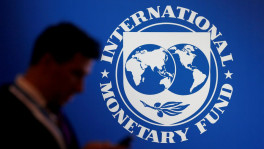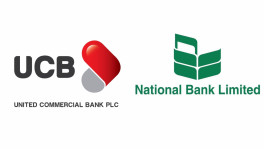Behavioural change needs to eliminate social inequality in the country: Secy Howlader
15 million people have become health conscious by USAID's Ujjiban

"In this era of the Fourth Industrial Revolution, there is no substitute for social and behaviour change communication programmes to achieve the objectives of the country's human health, population, and nutrition sector programmes. Also, special importance should be given to change the behaviour of the people of the country to eliminate social inequality," said Dr Md Anwar Hossain Howlader, secretary of the Health Services Division, Ministry of Health and Family Welfare (MOHFW).
The minister said it recently at the Learning Festival organised by United States Agency for International Development (USAID)'s Social and Behaviour Change Communication (SBCC) Project, Ujjiban, reads a press release.
Speaking at the event, Dr Md Anwar Hossain Howlader further said, "USAID's Ujjiban Project has played an important role in building the foundation for all this over the past five years. Meanwhile, USAID's Ujjiban project has been able to make fifteen million people health conscious in the last five years."
Miranda Beckman, USAID's acting director of the Office of Population Health and Nutrition reiterated the United States' commitment to supporting the Government of Bangladesh and its partners to build a country where women and men, and girls and boys can make healthy choices for themselves and their families.
She also emphasised collective action by all to foster development. "Development cannot be ensured only by governments and foreign aid. We must create room for the private sector and other non-traditional donors to join us in our work to achieve the Sustainable Development Goals.
At the same time, she called for the collective action of all men, women, girls, and boys to make healthy life choices for themselves and their families and to accelerate development.

USAID's Ujjiban Project has been working to increase healthy and health care-seeking behaviours.
The project works on four themes – maternal, new-born, child and adolescent health, family planning, nutrition and tuberculosis.
In collaboration with the Ministry of Health and Family Welfare, strategic partners and the private sector, the project is implementing various initiatives for health promotion among its priority populations in Chattogram and Sylhet divisions, the release adds.
Reflecting on their journey, the USAID Ujjiban project disseminated its learnings from over the past five years of implementation and set the stage for the development of more successful and innovative projects to continue advancing Bangladesh's health outcomes.
Few of the key recommendations put forward by the project based on lessons learned was to harness coordinated messaging across multiple channels to surround people with uniform information; take into account key influencing factors of health behaviour such as self-efficacy, couple communication, gender equity and social norms to create lasting change; and continue utilising health workers to reach women and girls with information on modern contraceptive method use and menstrual hygiene management.


 Keep updated, follow The Business Standard's Google news channel
Keep updated, follow The Business Standard's Google news channel
















